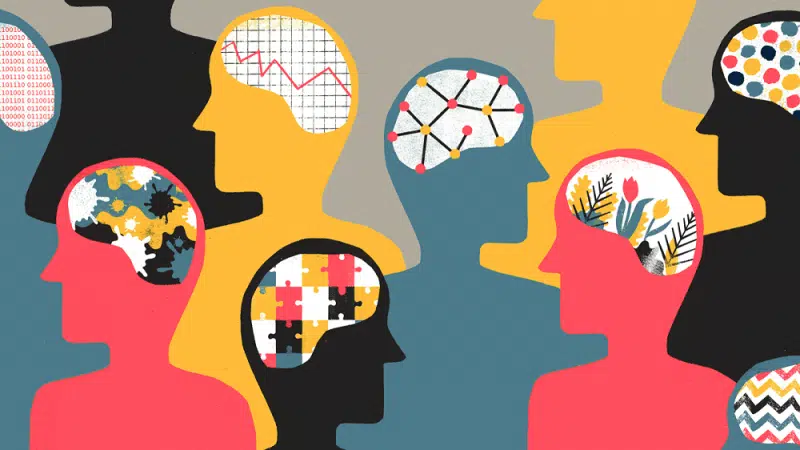mental illnesses
Mental illnesses are a broad group of mental disorders that are associated with changes in a person’s thinking, feelings, behavior and social relationships. Some famous mental illnesses include:
-
Depression: It includes severe feelings of depression, decreased energy and motivation, and sleep and eating disorders.
-
Anxiety: Anxiety may be accompanied by constant worries, irrational fears, and physical symptoms of stress.
-
Eating disorders: such as binge eating disorder, bulimia, and food anxiety, which are associated with irregular and abnormal behaviors.
-
Obsessive-compulsive disorders: includes repetitive and unconscious thoughts and actions that may affect a person’s daily life.
-
Addiction disorders: It includes incorrect trust in drugs or addictive substances and the inability to control their use.
These are just a few examples of mental illnesses, and there are actually other illnesses that may affect people. Treatment of mental illness usually includes a combination of medication, counseling, and social support.

Mental illness is caused by the effect?
Mental illnesses may be caused by a combination of genetic, biological, environmental and individual factors. Some of the key factors that may contribute to the occurrence of mental illnesses are:
-
Genetics: Some hereditary mental illnesses may occur due to the presence of genetic factors in people’s families.
-
Environment: Environmental conditions such as stress, neglect of basic needs, harmful experience, and inflexibility can contribute to the occurrence of mental illnesses.
-
Chemical: Chemical changes in the brain may cause cognitive and emotional disorders. Chemical agents such as drugs, narcotics, and environmental toxins cause these changes.
-
Life factors: experiencing tragic events, losing a loved one, financial and social problems, and other life factors can be related to the occurrence of mental illnesses.
-
Individual factors: Individual characteristics such as adaptability, coping stress level, intelligence level, and personality can play an important role in people’s vulnerability to mental illnesses.
Overall, mental illnesses appear as the result of a complex interaction of genetic, environmental and individual factors.

Factors of mental illness
Mental illnesses can be affected by several different factors. In the following, we examine the factors that may play a role in the occurrence of mental illnesses:
-
Genetic factors: Some mental illnesses such as depression, anxiety disorders, schizophrenia and bipolar disorders may be caused by genetic factors in the family.
-
Environmental factors: living environment, stressful events, family disorders, social barriers, and tragic experiences may be related to the occurrence of mental illnesses.
-
Chemical: the use of drugs, alcohol, narcotic drugs or environmental toxins can cause psychological side effects or aggravate mental disorders.
-
Brain processes: Changes in brain activity, brain chemical defects, and changes in brain structure may play a role in the occurrence of mental illnesses.
-
Individual factors: Individual characteristics such as personality, life history, stress coping skills, physical health, and mental state may be influential in the occurrence of mental illnesses.
-
Cultural and social factors: cultural differences, individual beliefs and values, social discrimination, and mental health facilities and access to medical services may also be influential in the occurrence of mental illnesses.
In general, mental illnesses appear as the result of a complex interaction of genetic, environmental, chemical, individual, and sociocultural factors.
